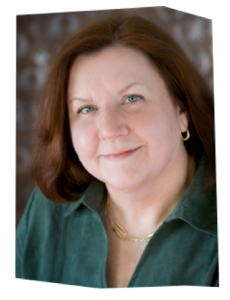In the previous posts, I told you about my number 1 practice for making HUGE strides in a new language, even in 15-minute sessions. Unfortunately, most parents and teachers of children learning languages are not aware of this treasure in the rough, so I decided to write a blog series just about this top-notch practice.
[Note: If you haven’t done it already, please go to post 1 and read until this point; there were lots of great information in the first 3 posts! BTW, the information is applicable to all languages, not only Spanish]
The practice, by the way is reading aloud and contributing today to the topic is my friend and colleague Karen Nemeth. She will talk about monolingual parents and how they have A LOT to gain by reading aloud in a new language to their children. Enjoy on this World Read Aloud Day 2012 (March 7)!
Only 15 Minutes for Spanish? Why Monolingual Parents Have a LOT to Win! By Karen Nemeth, Ed.M., www.languagecastle.com
Do you like to get even more for your time and effort? What about winning the language “trifecta” (your child learns, you learn, and both spend a great time together)?
Well, then I have a language learning strategy for you! Ana Lomba has already revealed her secret for spending fifteen minutes a day to help your child learn a new language. Now, here is the secret within the secret: when you read aloud to your child in a new language, you are more likely to learn that language yourself!
Many parents want their children to enjoy the benefits of learning a new language, but they feel intimidated about trying to learn and practice with their child.
That’s a shame because we know that a child who is ‘taught’ a new language must be given opportunities to actively use it or it will slip away.
To get the most out of the time and/or money you spend trying to help your child learn a new language, why not learn right along with them and get twice the results while doing something fun together!

You may be thinking back to the language courses you took in school – and perhaps those are not such happy memories.
Stop thinking about language learning in terms of boring textbooks or endless drills of sentences you may never use!
Certainly, much of what you learn in an adult language course would not be used with your child anyway…
After all, how many times do you have a reason to ask your child, “Where is the bank?” or “May I have two beers?” in Spanish or French or have a great discussion about the uses of the imperfect and the preterite?
Of all the sources you could find to build your own language skills as a parent and language learning role model, the language of storybooks may be the very best place to start!
Just think about the way stories are written. They are filled with illustrations that help you make sense of the new words on the page. They have familiar themes that you can follow and build on.
Storybooks provide you with the words, sentences, characters and conversations that are EXACTLY what you need to interact with your child in the language you are learning together.
Since the stories are familiar, it will be easier for you to learn the words. These are not just isolated vocabulary words. You will learn the new words in the context of meaningful sentences that prepare you instantly to engage in conversations with your child. Some of those conversations can be very interesting – maybe even dramatic or hilarious!
An important component to this successful strategy is that you must be willing to stick with one language at a time. If you or your child keeps going back and looking up the English words, you will not be challenging yourself to really learn and remember the new language.
The brain needs a bit of a challenge – we call it ‘demand quality’ – in order to actively learn new information. You know what that’s like now that we all have speed dial on our phones and we can’t remember anyone’s phone number any more. We can all use a little brain exercise from time to time.
The beauty of storybooks – whether they are old or new, hardcover or paperback, paper or electronic – is that they provide a world of meaning and context that makes it so much easier to remember and use the new language.
Storybook reading in a new language is an activity that will bring benefits to you, benefits to your child, and benefits to your relationship with each other. Now that’s a lot to gain from just fifteen minutes a day!

Karen Nemeth, Ed.M. is an author, speaker and consultant on teaching young children who are dual language learners. You can find her books, Many Languages, One Classroom: Teaching Dual and English Language Learners and Many Languages, Building Connections: Supporting Infants and Toddlers who are Dual Language Learners at www.gryphonhouse.com
Visit her website at www.languagecastle.com for lots of resources about young children learning languages.
P. S. Talking about reading aloud, make sure to check my collection of bilingual e-storybooks in Spanish, French, and Chinese with English on this website (also available as iPad apps from the iPad App Store).
P. S. S. If you are on Facebook, make sure to “like” my Ana Lomba Early Languages page (and thanks!)
P. S. S. S. And while you wait for the next blog you may want to take a look at the “Language Challenge 180” hosted by Multilingual Living. Better to learn in company, don’t you think? At this point there are over 650 families that have joined the challenge. Why not join the fun!
******
Ana Lomba is changing the way people think about and interact with young children learning languages. Her Parents’ Choice award-winning books, lively songs, games, stories, and mobile applications are quickly becoming favorites with teachers and parents who want to nurture young children’ inborn language abilities. Key to the success of Ana’s break-through method is a focus on the family as the ideal environment for early language learning – even her signature curriculum for language programs is built with parents in mind. Ana has taught toddler, preschool, elementary school, and college-level Spanish courses, and held leadership positions with some of the most influential language organizations in the US, including ACTFL, NNELL and FLENJ. After graduating with a law degree from Spain, her native country, Ana pursued graduate studies at Binghamton University, Princeton University, and NYU.
Leave a Reply